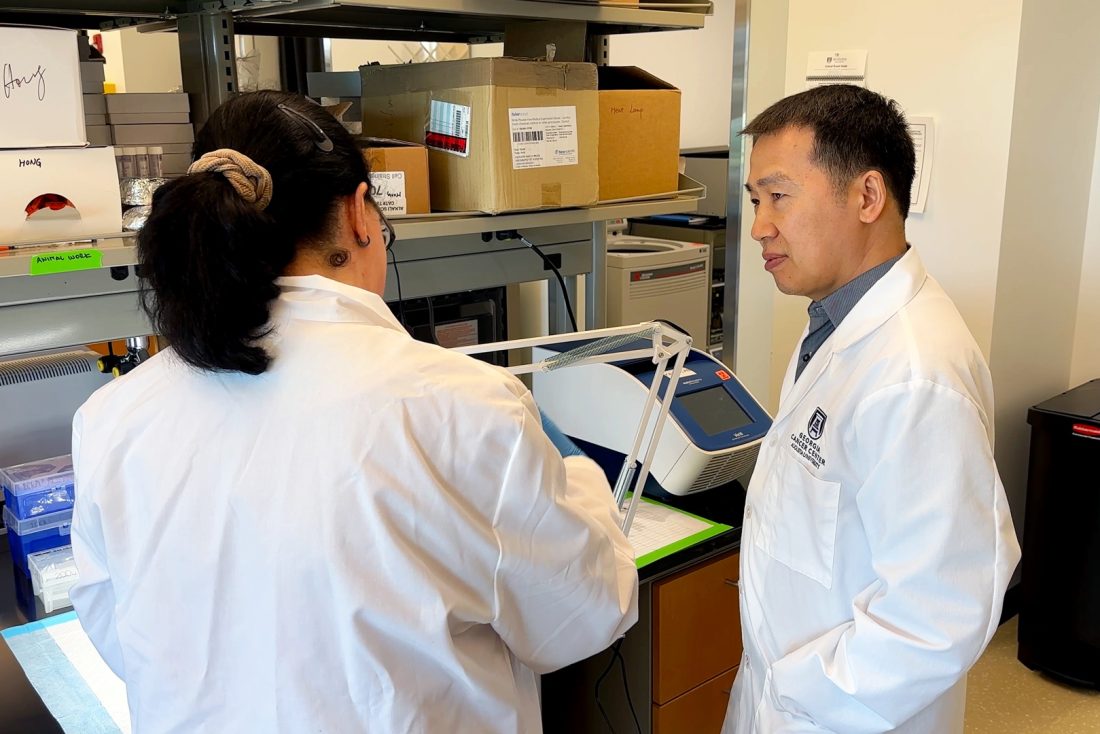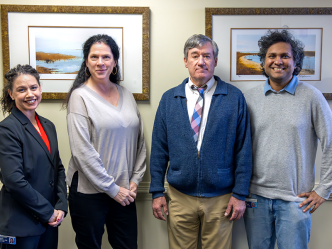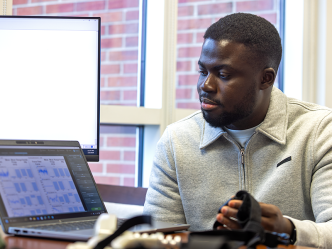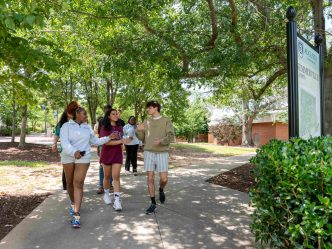In a significant step forward for cancer treatment, researchers at the Georgia Cancer Center at Augusta University have discovered a new tool in the battle against breast cancer. The initial findings from a recent study showed that combining a common medicine typically used for heart conditions, known as a beta-blocker, with a specially designed cancer-fighting virus can dramatically improve the effectiveness of treatments.
“At the heart of our approach is an ‘oncolytic herpes simplex virus,’ or oHSV,” said Bangxing Hong, PhD, an assistant professor at the Georgia Cancer Center. “This is not just any virus; it is a carefully engineered version of a common virus to target and infect cancer cells, multiplying inside them until they burst and die, all while leaving healthy cells nearby intact.”
During their research, Hong and his research team learned how cancer cells can manipulate our body’s own systems. The study, “β-blocker suppresses both tumoral sympathetic neurons and perivascular macrophages during oncolytic herpes virotherapy,” uncovered a surprising challenge: even as the cancer-fighting virus oHSV was doing its job attacking tumors, it inadvertently triggered a part of the body’s nervous system called the sympathetic nervous system, or SNS. This system is responsible for your body’s “fight or flight” response, kicking in when you feel scared or excited.
“What we found was that the cancer was using this activated SNS almost like a hidden shield to protect itself from the very treatment designed to destroy it,” Hong said. “This interaction between the nervous system and tumor development was previously not well understood, highlighting another way cancer can resist treatment.”
The oHSV treatment also led to an increase in specific immune cells, called perivascular macrophages, within the tumor. Instead of joining the fight against cancer, these particular cells actually helped the tumor by sending signals that told other crucial immune cells, like CD8+ T cells, which are your body’s main cancer fighters, to stand down from attacking the tumor cells.
“We were surprised to find that even as our oncolytic virus was attacking cancer, the tumor was cleverly using the body’s own ‘fight or flight’ response and certain immune cells to build a shield against our treatment,” Hong explained. “It was like this cancer was sending out a distress signal that actually helped it hide from the immune system, making our initial therapy less effective than it could be.”
This is where the beta-blocker enters the picture as a notable change. The researchers discovered that when they administered the beta-blocker alongside the cancer-fighting virus, it achieved two critical things. First, it directly suppressed the cancer’s ability to use the “fight or flight” nervous system as a shield, disarming this protective mechanism.
Second, and perhaps even more remarkably, the beta-blocker did not just reduce the number of unhelpful perivascular macrophages, but it actually caused these cells to undergo a transition, effectively reprogramming them from cancer-helpers into active cancer-fighters. These reeducated macrophages then expressed different markers, indicating they had become inflammatory and helpful to the immune response. The combination therapy significantly enhanced the overall ability of the immune system to fight breast cancer.
Discussing the role of the beta-blocker, Hong added, “By adding a common beta-blocker, we essentially disarmed the cancer’s shield. Not only did it block the nervous system’s unhelpful signals, but it also reprogrammed the immune cells that were helping the cancer, turning them into allies for our immune system.”
Hong’s research and his findings were published in the Journal for ImmunoTherapy of Cancer.
 Augusta University
Augusta University




